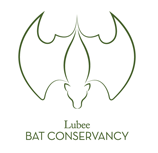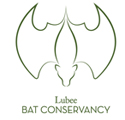
Project EduBat
Bats occupy almost every habitat in the world eating tons of insects nightly, pollinating flowers, and spreading seeds that grow new plants and even trees. Bats are our most important natural predators of night-flying insects consuming mosquitoes, moths, beetles, crickets, leafhoppers, chinch bugs, and much more! Many of these insects are serious crop or forests pests, and others spread disease to humans or livestock. Every year bats save us billions of dollars in pest control by simply eating insects.
All but four of the 47 bat species found in the United States and Canada feed solely on insects. The remaining species feed on nectar, pollen, and the fruit of cacti and agaves in southwestern deserts. Although bats account for almost a quarter of all mammal species (there are more than 1,300 species of bats worldwide), bats are by far the least studied of all animals.
Bats are in decline nearly everywhere they are found. Bat numbers in the U.S. and Canada have declined dramatically as a new disease, White-Nose Syndrome, has killed over 6 million bats in just six years.
Bats need friends. BATS NEED YOU! Join us for this exciting project and you can help bats!
Follow us on Facebook - https://www.facebook.com/ProjectEduBat
- CLICK HERE for activities and the new curriculum
- CLICK HERE to learn how to use and receive our Bat Education Trunk
- CLICK HERE for the posters and group mural
- CLICK HERE for additional resources for EduBat Activities
- CLICK HERE for a one-minute video about White-Nose Syndrome, the devastating disease that has killed over 6 million bats in just 6 years. Help us spread the word about the importance of our bats and why they need our help.






















